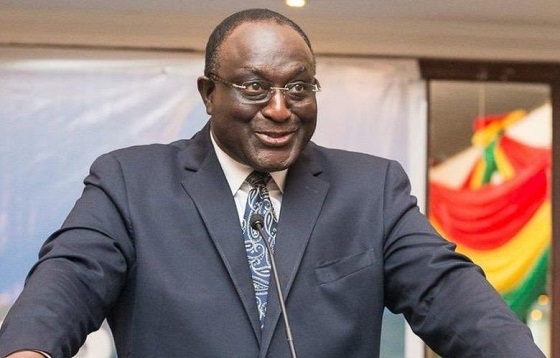The founder and leader of the Movement for Change (M4C), Alan Kwadwo Kyerematen, has announced his bold plan to abolish the Council of State if elected president.
During the launch of his party's manifesto, "The Great Transformational Plan" (GTP), on Monday, June 24, Kyerematen highlighted the need for significant changes in governance and the economy.
He proposed replacing the Council of State with a new Second Chamber of Parliament, comprising representatives from key stakeholder groups such as labour unions, faith-based organisations, traditional authorities, professional bodies, gender-based organisations, the private sector, and people with disabilities.
“Abolish the Council of State and establish a new Second Chamber of Parliament with a representation from key stakeholders including faith-based organisations, traditional authorities, professional bodies, gender-based organizations, the private sector, labour unions, and people with disabilities,” Kyerematen stated.
“That is the truly representative government. That is what we call an all-inclusive government and national unity, and that is going to happen.”
Kyerematen criticized the two major political parties, the New Patriotic Party (NPP) and the National Democratic Congress (NDC), arguing that they have exhausted their competencies and should not return to power.
He pointed out that both parties have had the opportunity to govern Ghana for the past 32 years without demonstrating viable plans for the country's future.
Instead, Kyerematen urged Ghanaians to consider a new option in the Movement for Change, which he leads and under which he intends to contest the 2024 Presidential election as an independent candidate.
He described the GTP as a comprehensive blueprint for Ghana’s economic transformation, offering robust policy prescriptions and practical steps towards building an enterprise-driven economy.
The plan aims to create a prosperous, united, and peaceful Ghana that provides equal opportunities for all, especially young people, women, and other vulnerable groups, enabling them to realize their full potential and improve their livelihoods and general well-being.
Kyerematen emphasised the financial mismanagement by the two leading parties over the last three decades, which he claims has resulted in extensive borrowing to finance their manifesto promises.
He pointed out the ongoing anticipation for the manifestos of the NPP and NDC with only five months remaining until the general elections, criticizing the culture of unrestrained borrowing that has led to the country's current financial predicament.
“The culture of unrestrained borrowing is what has landed us into the ditch in which we find ourselves,” he remarked.
With his ambitious proposals and critique of the current political landscape, Kyerematen’s announcement signals a call for substantial change and a new direction for Ghana's governance.





